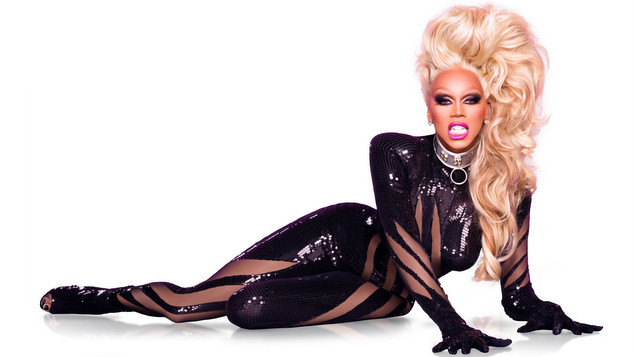Gossip Columnist Liz Smith was born on this day in 1923
Columnist Liz Smith was born on this day in 1923. Born in Texas, Smith studied journalism at university before working on local newspapers. She later moved to New York where she worked as a typist and proofreader before becoming a reporter.
She worked behind the scenes as a producer for newsman Mike Wallace at CBS radio, and later moved into television at NBC. In the early 1960s she worked as an entertainment editor, simultaneously working at magazines Sports Illustrated and Cosmopolitan. While working at the latter she served under legendary editor Helen Gurley Brown.
From the mid-1970s onwards Smith began publishing a celebrity gossip column in the New York Daily News, she also began appearing on television dishing celebrity gossip. By the mid 1980’s her column was appearing in over 70 newspapers, and she was the highest paid print journalist in America.
Smith had two brief marriages, but in her memoirs she acknowledged she was “gender neutral” when it came to relationships.
“I think that my relationships with women were always much more emotionally satisfying and comfortable [than with men]. And a lot of my relationships with men were more flirtatious and adversarial. I just never felt I was wife material. I always felt that I was a great girlfriend.” Smith said.
The writer’s first marriage was to George Edward Beeman in the 1950s, it lasted two years. Her second marriage to Fred Lister that began in 1957 lasted 5 years. Smith also had a long term relationship with archaeologist Iris Love.
Her column was cut in 2009 as newspapers tried to save money, by the time she stopped writing she had been dubbed the ‘Grand Dame of the Dish’ because she’d broken so many big celebrity news stories.
During the peak of her career in the 80’s and 90’s she broke big celebrity stories like Donald Trump’s divorce from wife Ivana and Madonna discovering she was pregnant during the filming of Evita.
Smith didn’t take her profession too seriously, commenting that gossip was meant to be a fun look at the world around you.
“We mustn’t take ourselves too seriously in this world of gossip,” she said in 1987. “When you look at it realistically, what I do is pretty insignificant. Still, I’m having a lot of fun.”
Smith died at her home in New York on 12 November 2017 at the age of 94, her death was attributed to natural causes.
In 1988 lesbian activists protested the introduction of Britain’s Clause 28 laws by abseiling into the House of Lords
Clause 28, also known as Section 28, was a law enacted in the United Kingdom in 1988 as part of the Local Government Act. It stated that a local authority “shall not intentionally promote homosexuality or publish material with the intention of promoting homosexuality” or “promote the teaching in any maintained school of the acceptability of homosexuality as a pretended family relationship.”
The law was controversial and widely criticized for promoting discrimination and stigmatising the LGBTQ+ community.
Voicing their opposition to the introduction of the law, on this day in 1988 a group of lesbian activists staged a dramatic protest. They tied a washing line to the public gallery and swung down into the chamber bellow.
In 2017 in an interview with The Guardian, one of the protestors, Sally Chapman, recounted how they staged the action.
“We had done lots of actions, lots of blockades and breaking into places. But this was different. The day before, one of my friends was in the chamber of the House of Lords wondering what we could do there. She had the idea of swinging from the microphones hanging from the ceiling. We thought they were probably not strong enough.” Chapman recalled.
“In the end, we bought a washing line in Clapham market and knotted it up on the bus on the way up – it was pretty low-tech stuff. I smuggled the rope in under my donkey jacket and didn’t set off any alarms.”
When the politicians voted in favour of the law, two women swung into the chamber below, they were ejected from the chamber and thrown out of the building. Their four friends who blocked security in the public viewing gallery above were detained and held for several hours.
Despite opposition, Clause 28 remained in effect until 2003, when it was finally repealed in Scotland and 2003 in England and Wales, marking a significant step forward in the fight for LGBTQ+ equality in the UK. The British government later issued a formal apology for introducing the law.

RuPaul’s Drag Race made its debut in 2009
The very first episode of RuPaul’s Drag Race aired on this day in 2009. It featured nine contestants and BeBe Zahara Benet was the inaugural winner, winning a cash prize of $20,000 plus $5,000 of cosmetics.
The original judges sitting either side of RuPaul were Santino Rice and Merle Ginsberg. The first season was accompanied by a web series Under the Hood of RuPaul’s Drag Race: Untucked.
The show would go on to launch the careers of many internationally successful performers including Jinkx Monsoon, Bianca Del Rio, Bob the Drag Queen and many others.
There’s also been many versions of the show internationally included a UK version, a Down Under version, plus Thai, Canadian, Dutch and Spanish versions too.
This post was first published on 2nd February 2020 and subsequently updated.





